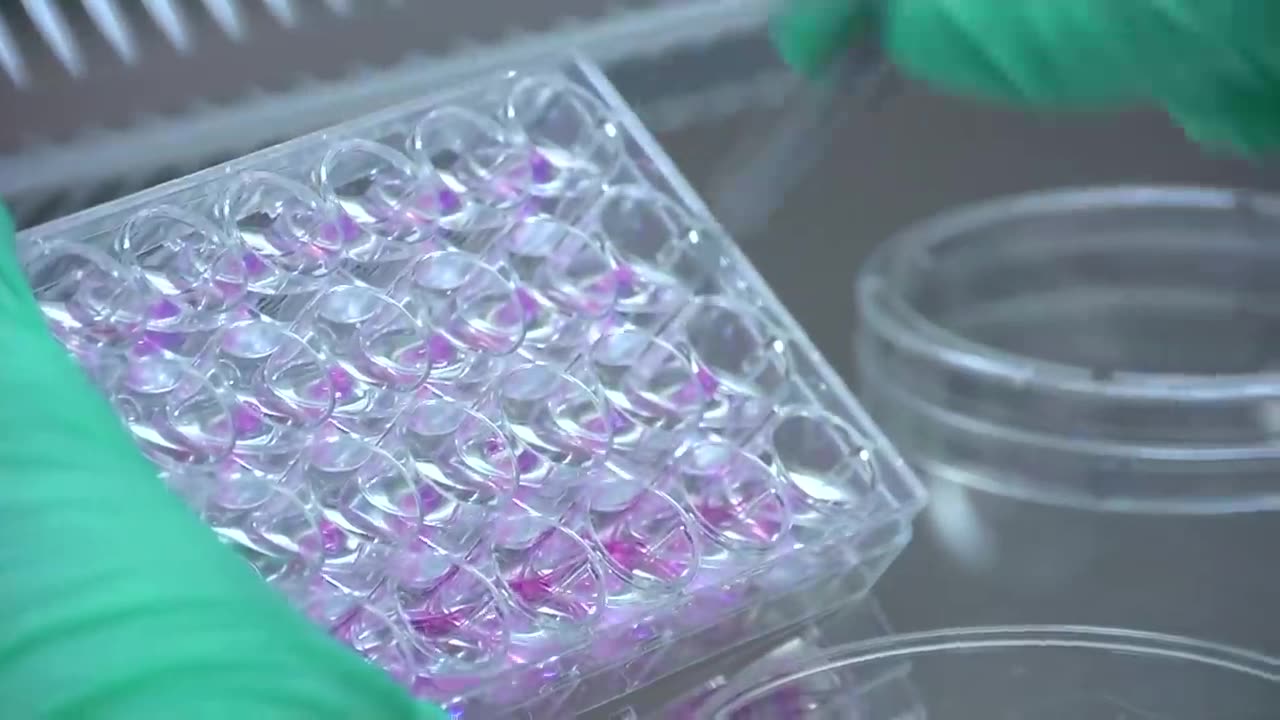Premium Only Content

Truth About Lab-Grown Meat idea is to eliminate the unethical treatment of animals
Advocates tout clean meat as a sustainable alternative to traditional agriculture but consumers remain skeptical and somewhat perplexed by the concept.
The average American consumes about 222 pounds of beef a year, or 2.4 burgers a day, according to US Department of Agriculture (USDA). Raising cows for beef production is very costly and the environmental impact of cow herds is problematic. Moreover, the crowded conditions of factory farms require that cows are fed antibiotics to counter disease, but the exposure to antibiotics and other chemicals remains in the meat. Cows are then slaughtered violently with a bolt to the head, skinned and gutted.
Now, imagine taking a bite out of a juicy beef burger that does not require the slaughter of cows. The future in which your hamburger is grown from cells in a laboratory is quickly becoming a reality.
The idea is to eliminate the unethical treatment of animals raised for food and reduce greenhouse-gas emissions by culturing meat in a lab. In 2013, scientists created the first burger developed from cultured meat. Since then funding for lab grown meat has increased dramatically and many private companies and investors have joined the field. Recently, many start-ups interested in the new method of meat cultivation have begun to develop lab-grown meat, such as beef, pork, and seafood. Supported by investors, the start-up Memphis Meats received $1.7 million in resources to begin growing lab-grown meat, also known as clean meat. Clean meat is continuing to garner much interest from both the scientific and public field.
The environmental impact of the current meat industry is problematic. Animal agriculture is accountable for about 4 percent of emissions in the US. Lab -grown meat offers a reduction of emission by eliminating the shipment of meats great distances to be processed and brought to local supermarkets. Instead, lab-grown meat could be directly grown in vitro meat facilities near consumers, cutting down on the energy needed to raise livestock, package, and ship meat products. Moreover, David Welch, the director of the Good Food Institute that promotes lab-grown meat, estimated that lab-grown meat uses up to 98 percent less water and and 90 percent less land. However, researchers from the University of Oxford found that methane emissions from cattle leave a short term impact on global warming, whereas carbon dioxide emission from the lab has long term impacts.
-
 17:51
17:51
What If Everything You Were Taught Was A Lie?
7 days agoHow Satan & Vatican Pedophile's Hide Their Trillion Of Dollar's Gold, Art, Real Estate Global Wealth
1.87K2 -
 LIVE
LIVE
Lofi Girl
2 years agoSynthwave Radio 🌌 - beats to chill/game to
192 watching -
 2:14:18
2:14:18
The Pascal Show
13 hours ago $0.64 earnedTHEY LIED TO POLICE AGAIN? Jake & Rebecca Haro Have Lost Their Minds! Emmanuel Haro Search Continues
8.48K -
 1:25:52
1:25:52
TruthStream with Joe and Scott
2 days agoSG Sits Down w/ LT From "And We Know": An 80K FT View of Humanity's Great Awakening from 8/22/2025
20.9K16 -
 15:54
15:54
Lacey Mae ASMR
12 hours ago $0.68 earnedASMR For Sleep in 15 Minutes!
13.1K10 -
 3:16:38
3:16:38
Price of Reason
12 hours agoTrump FIRES Fed Governor Lisa Cook! Cracker Barrel CRISIS Continues! James Gunn DCU Woes! Gamescon!
116K8 -
 2:25:01
2:25:01
FreshandFit
7 hours agoTyreek Hill Pays Ex Wife $1 Million in Ongoing Fees From Divorce?!
37.5K4 -
 2:03:46
2:03:46
Inverted World Live
9 hours agoHaunted Dolls Hack Amazon Alexa | Ep. 98
109K2 -
 3:09:53
3:09:53
Laura Loomer
9 hours agoEP140: Loomer EXPOSES Islamification At US State Department
37.4K12 -
 3:05:00
3:05:00
TimcastIRL
9 hours agoTrump Floats Accepting 600,000 Chinese Student Visas, MAGA Uproar | Timcast IRL
217K161